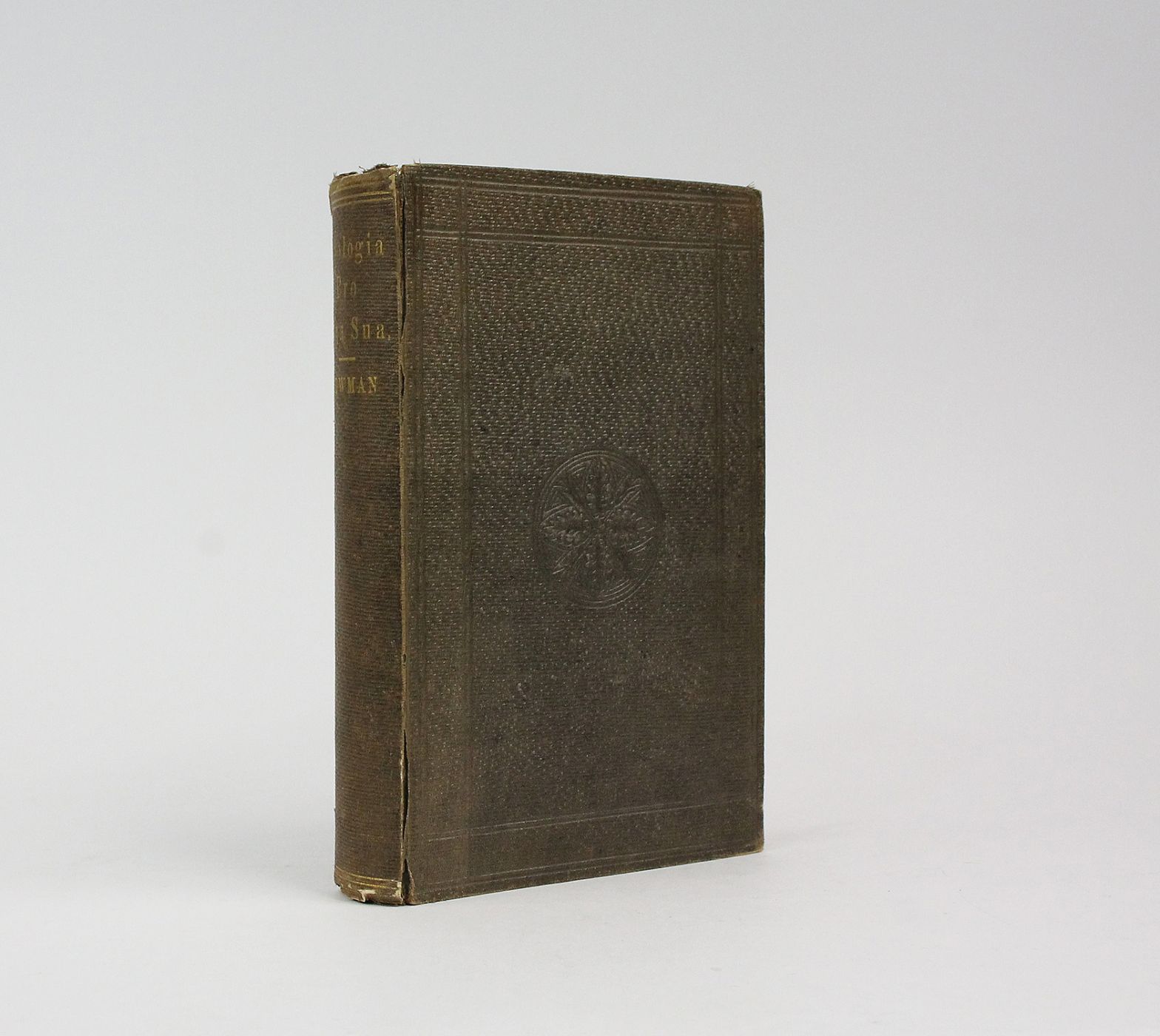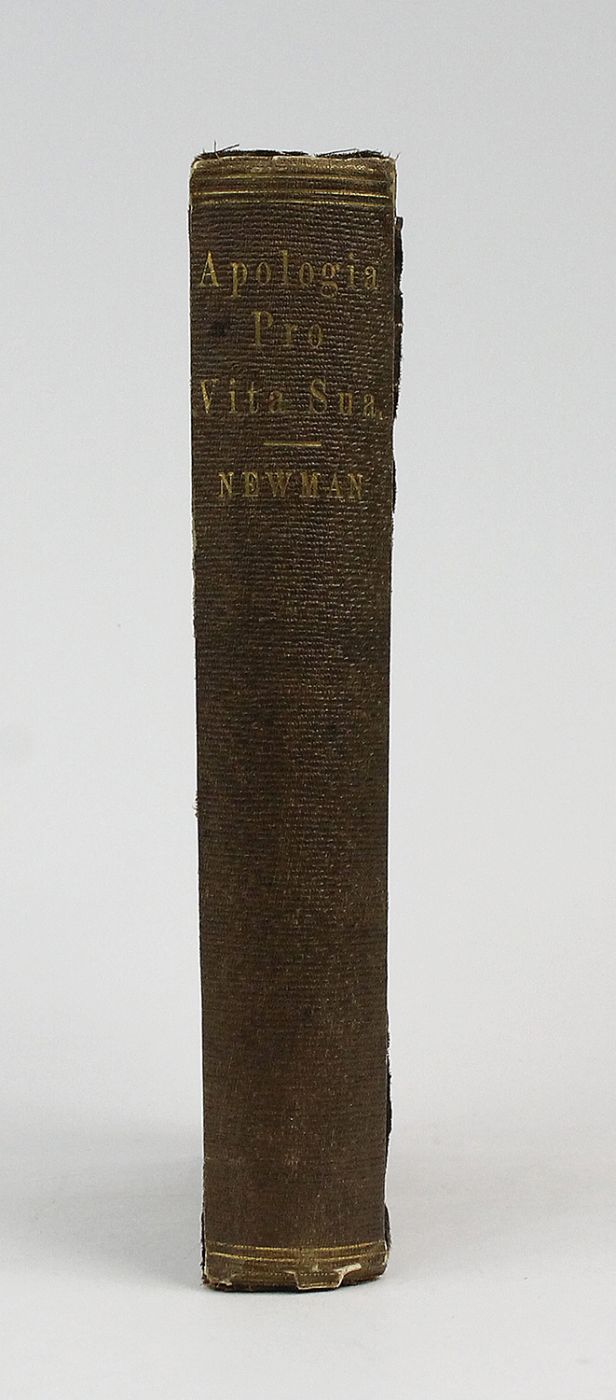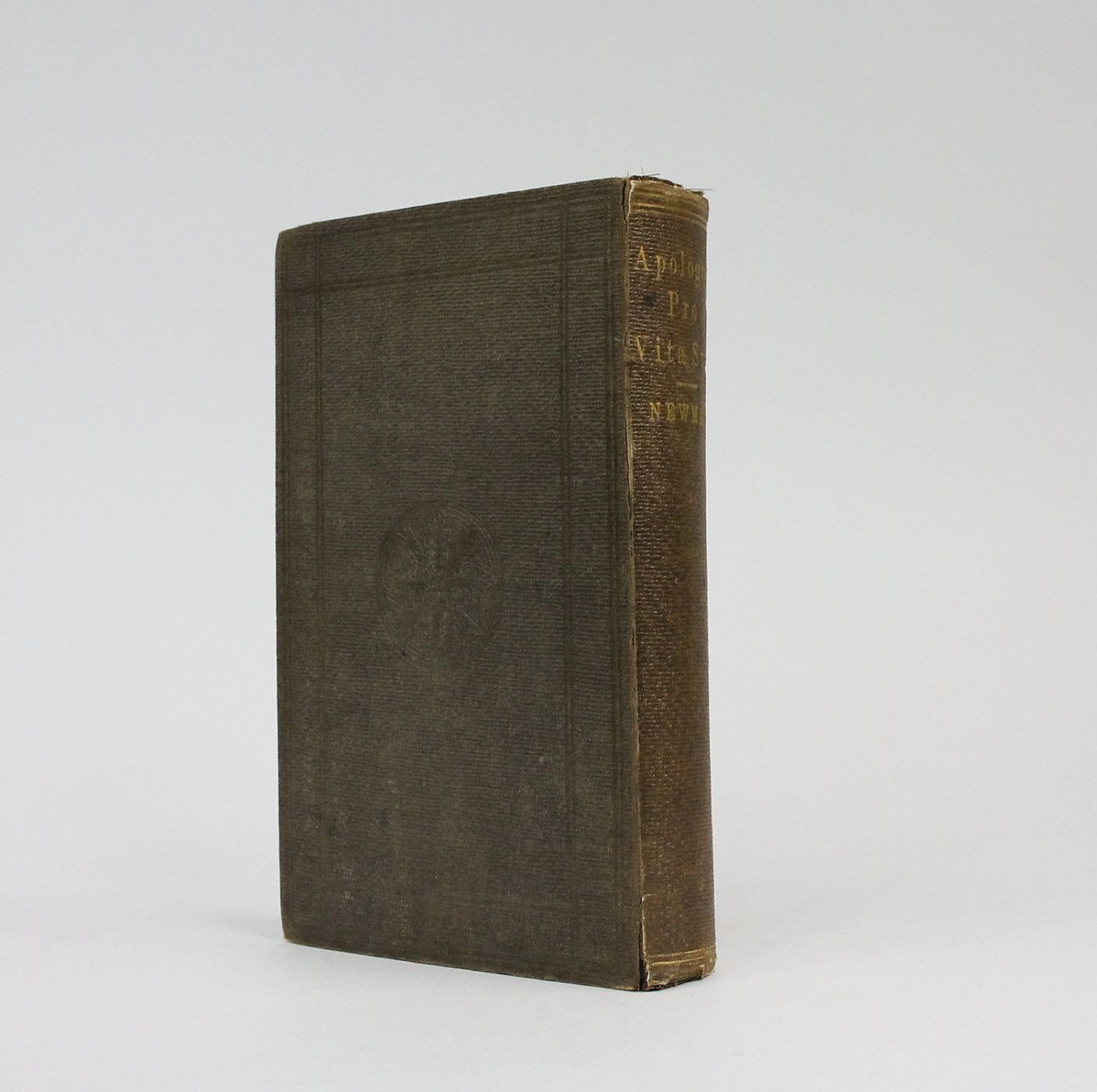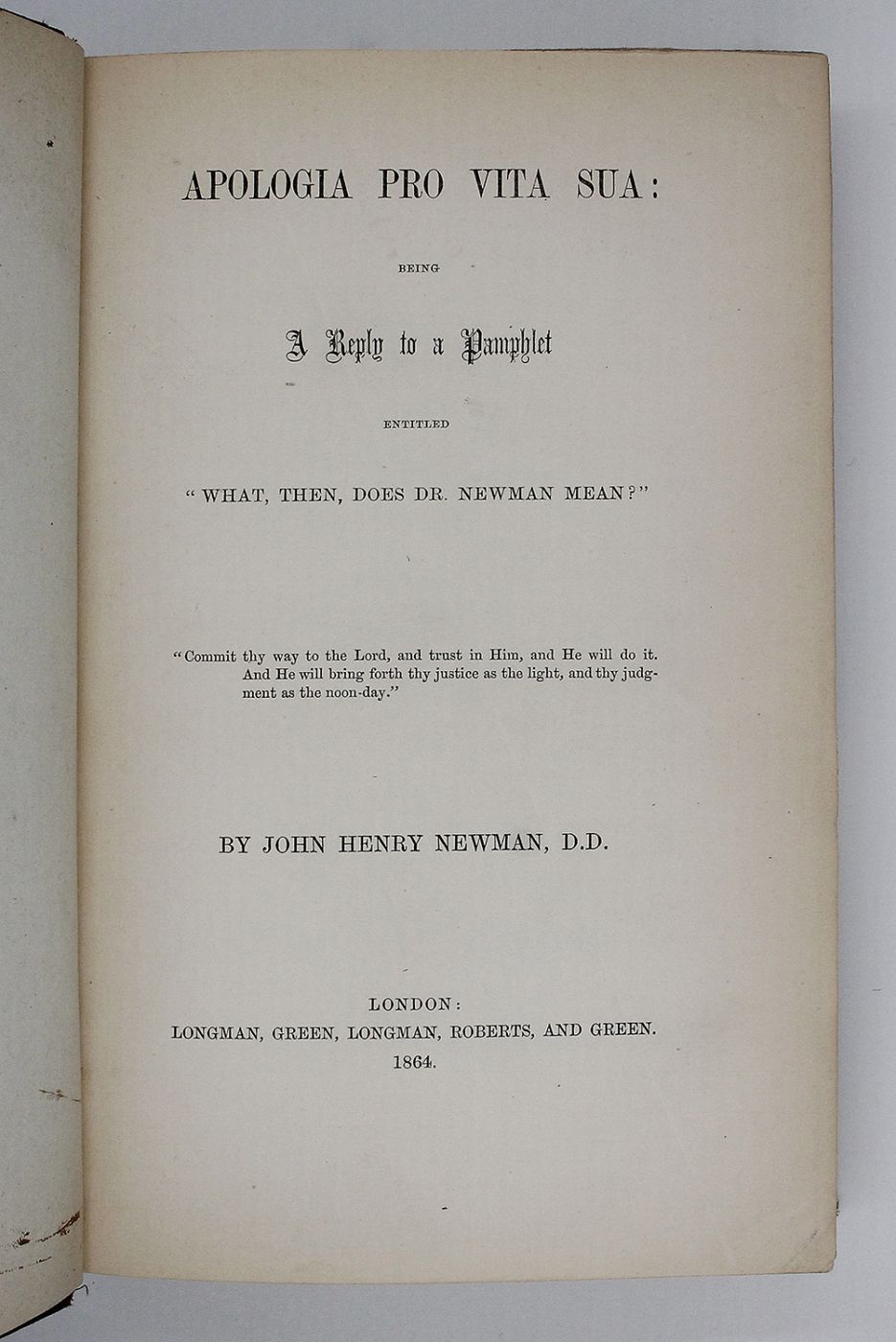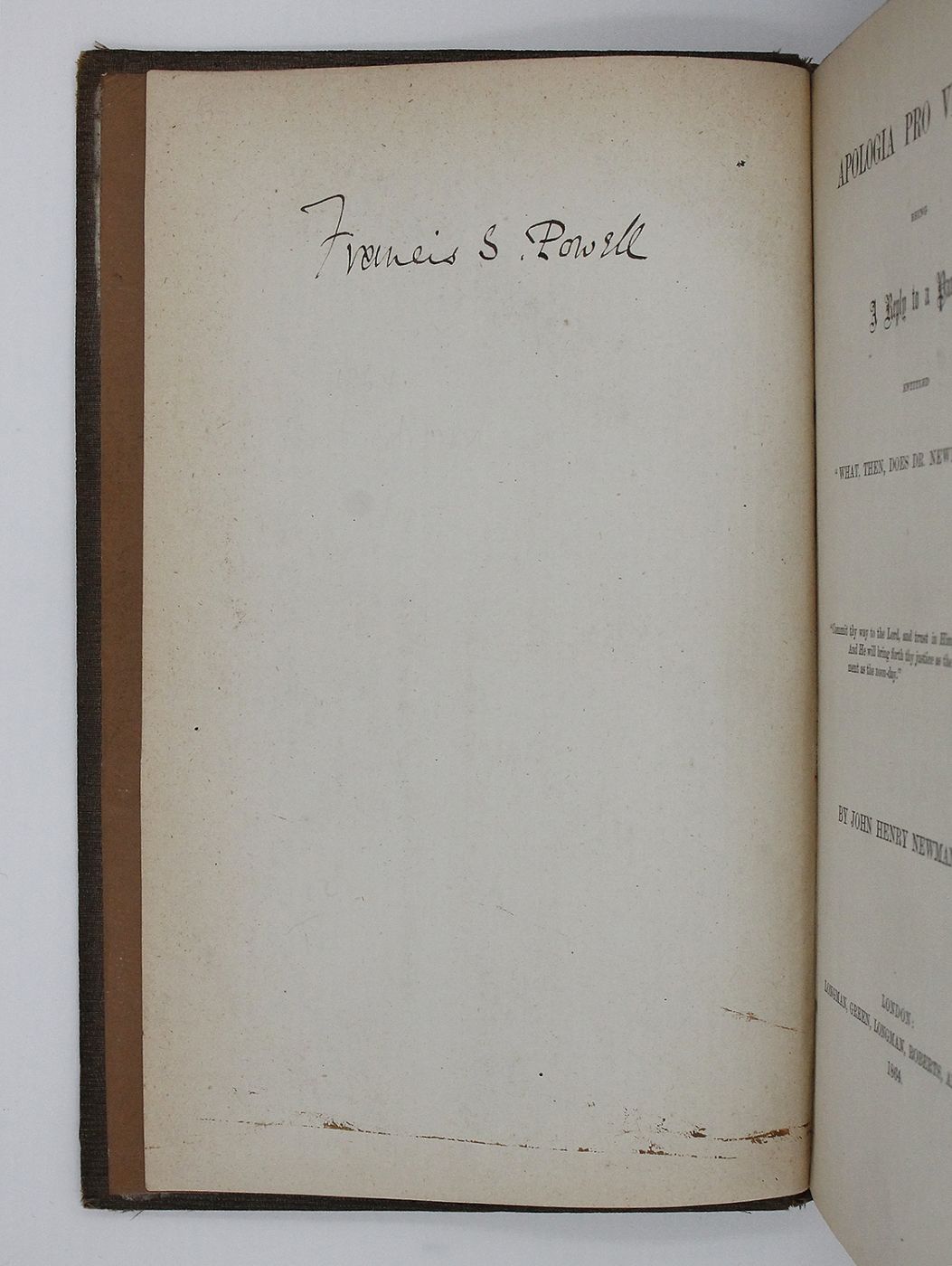APOLOGIA PRO VITA SUA: Being A Reply to a Pamphlet Entitled "What, Then, Does Dr. Newman Mean?"
First edition in book form, first printing. From the library of the Conservative politician and Baronet, Sir Francis Powell (1827-1911), with his name in ink to the verso of the front free endpaper and a few notes in pencil to the verso of the rear free endpaper. Publisher's original brown cloth with quatrefoil roundel and ruling in blind to the front and rear panels, lettered and ruled in gilt to the spine. A better than very good copy, the binding square and firm with minor fraying at the spine tips, cloth clean, the gilt sharp. The contents, with a pencilled line beside a single paragraph (on p. 60 of the separately paginated Appendix) and the notes mentioned above, remain clean throughout, without spotting or soiling. Top edge of the text block is a little dusty. An attractive, unsophisticated copy in the original cloth of the first bound edition of this great work of Victorian prose. Scarce in this condition.
One of the crowning achievements of English autobiography and Victorian prose, Newman's 'Apologia Pro Vita Sua' emerged out of a squabble in print with Charles Kingsley, priest, Regius Professor of History at Cambridge, and author (most famously of 'The Water Babies'). In a review of J. A. Froude's (notably anti-Catholic) 'History of England' appearing in the January 1864 number of 'Macmillan's Magazine', Kingsley included the remark: "Truth, for its own sake, had never been a virtue with the Roman clergy", and that "Father Newman informs us that it need not, and on the whole ought not to be; that cunning is the weapon which Heaven has given to the saints wherewith to withstand the brute male force of the wicked world which marries and is given in marriage". With its cliché of Catholic cunning, its sarcastic swipe at clerical celibacy, as well as its personal slighting of Newman (who had left the Church of England for the Catholic Church in 1845), Kingsley's review prompted a heated correspondence between Kingsley, Newman, and the magazine's editor. Newman published this correspondence (with concluding comments) in pamphlet form, Kingsley quickly responding with his own pamphlet entitled 'What, Then, Does Mr. Newman Mean?' (in March). The spat with Kingsley encouraged Newman to write something more substantial, "a survey of my whole course", no less, "which I should not be sorry for, tho' I dread the wear and tear of it" (he wrote in a letter). The 'Apologia', the most personal thing he would ever write, was written at remarkable speed ("My fingers have been walking nearly 20 miles a day") and published in weekly pamphlet form by Longman, Roberts and Green. In keeping with the speed of composition, the eight pamphlets were issued in book-form (with minor corrections) the same year, also by Longman. The work, which has been in print ever since, is now recognised as one of the great nineteenth century English autobiographies (along with those by, among others, Carlyle, Mill, Darwin, and Ruskin), as well as an addition to the tradition of English spiritual biography going back to Julian of Norwich and Bunyan (not to speak of a wider tradition reaching back to Augustine's 'Confessions'). (Ian Ker, 'John Henry Newman: A Biography', Oxford: 1988; Blehl A1b).
Stock code: 22958
£375
Published:
Category
LiteratureReligion


